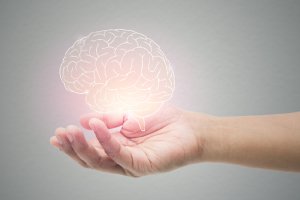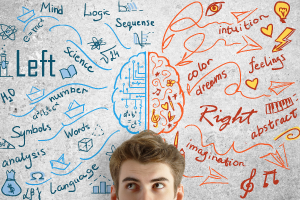

Everyone goes through periods of grief and sadness. This feeling generally settles in a few days or within a week. But in some cases, the episodes of intense sadness last for a longer duration, showing no signs of fading out. The feeling is so intense that it even holds you back from enjoying happy moments. In medical terminology, the condition is termed as depression. Long-term depression, also known as persistent depressive disorder or dysthymia, is depression that lasts for a fairly long time. The long-term depression symptoms are less severe but more chronic. Read through for depression symptoms and their effective treatment.
What is Long-Term Depression?
Persistent depression or long-term depression is defined as a condition that is prevalent for two years or more. A person with persistent depressive disorder might not feel as intense as major depression, but the condition affects day-to-day activities and strains relationships. Furthermore, it can morph into major depression if left untreated.
Causes of Persistent Depression
There are no known depression causes. The condition seems to be triggered by:
- Biological Makeup – Experts feel the brains of individuals with the persistent depressive disorder may be biologically different and have physical changes than those without the condition.
- Brain Chemistry – Changes in neurotransmitters, the naturally occurring brain chemicals, may play a crucial role in depression and its treatment.
- Inherited Traits – Persistent depressive disorder is believed to be hereditary. Certain genes that pass on through blood may be involved in causing depression.
- Life Events – Different situations in life can trigger depression symptoms like trauma, loss of a loved one, financial loss, relationship issues, etc. Children growing up in families that have a lot of relationship issues are more prone to develop long-term depression symptoms.
- Persistent Stress – Stress impairs the ability to regulate mood. Long-term stress due to personal, professional, financial or social reasons can translate into long-term depression.
Risk Factors of Long-Term Depression
Certain people are at a higher risk of developing depression. The key factors that increase the risk of developing long-term depression include:
- Having a blood-relation diagnosed with depressive disorder.
- Trauma or stressful life events increase the risk of developing depression.
- Certain personality traits like being an introvert, being overly dependent, negative outlook, and having low self-esteem; all act as risk factors for developing depression.
- Showing signs of personality disorder.
Characteristic Long-Term Depression Symptoms
For many people suffering from depression, even mild symptoms are enough to bring about noticeable changes in behaviour. Recurrent problems in day-to-day activities, unexplained unhappy feelings, and relationship issues become common. Long-term depression is characterised by a depressed mood. Other long-term depression symptoms include:
- Unintentional weight changes due to loss of appetite or overeating
- Disturbed sleep pattern
- Low energy levels
- Persistent fatigue
- Low self-esteem
- Poor concentration
- Pain, aches and digestive problems
- The feeling of hopelessness and worthlessness
- Unexplained feeling of guilt
- Recurring thoughts of death
- Loss of enjoyment in things you loved doing
- Withdrawal from social activities and isolation
- Poor time management
- Severe mood swings
- Difficulty in decision making
Preventing Depression
While there is no sure-shot way to prevent long-term depression, a few strategies may help reduce the frequency and episodes of feeling low and detached. These include:
1. Practising Self-Care
Self-care and self-love help you recover from long-term depression. Research shows that people who do things that make them feel happy are less likely to become depressed. Take out time for yourself and indulge in self-oriented tasks.
2. Quality Sleep
Sleep helps the body and mind to relax and rejuvenate. It is the time when the body repairs itself. There is a strong link between sleep and mood. While poor sleep increases depression, anxiety, irritability, and stress, getting eight hours of quality sleep each night helps reduce depression symptoms.
3. Balanced and Healthy Diet
Diet plays a crucial role in physical and mental well-being. A healthy diet that provides all the essential nutrients helps the body and mind to function properly. This helps regulate blood sugar levels, reduce stress and anxiety hormones and help regulate mood.
4. Relaxation Techniques
Incorporating relaxation methods into a daily routine helps reduce depression symptoms. Practising yoga, meditation, aromatherapy, etc. helps relax the body and mind. They improve mood, relieve stress and ease depression symptoms.
Therapies to Cope with Depression
Long-term depression not just affects the sufferer but also the people around them. Therefore, taking note of depression symptoms and seeking immediate help is important. A combination of medication and talk therapy help in relieving depression symptoms. A few noted therapies to cope with depression include:
1. Cognitive Behavioural Therapy (CBT)
It is one of the most pronounced therapies for managing long-term depression symptoms. It is a behaviour therapy that helps the patient recognize and evaluate his/her thoughts and work on changing negative thought patterns.
2. Interpersonal Therapy (IPT)
IPT helps treat long-term depression symptoms in people facing interpersonal relationship issues. This may lead to feelings of isolation and loneliness. IPT works in one-on-one or family settings to help understand each other and resolve issues.
3. Psychodynamic Therapy
Psychodynamic therapy helps in overcoming long-term depression symptoms caused due to traumatic life incidents. It focuses on the unconscious mind and helps overcome afflicted thoughts.
3. Dialectical Behavior Therapy (DBT)
DBT helps individuals with personality disorders. It works by helping them develop new skills to overcome difficult and demanding situations. It breaks the cycle of negative thoughts and helps people recover from depression. It can be both a group or individual therapy.
Conclusion
Long-term depression, or persistent depressive disorder, can have a serious impact on life. Long-term depression symptoms can transcend from mild to severe and can also fuel death. Therefore, it is important to help people struggling with depression. Help for depression starts with identifying depression symptoms. While the sufferer may not be able to identify symptoms and accept depression diagnoses, it is the responsibility of the people around to help their loved ones.
Long-term depression is curable with early intervention. Medication and talk therapies help people cope with depression symptoms. However, if ignored and left untreated, it can morph into a major depressive disorder with signs of severe depression and innumerable health complications.




